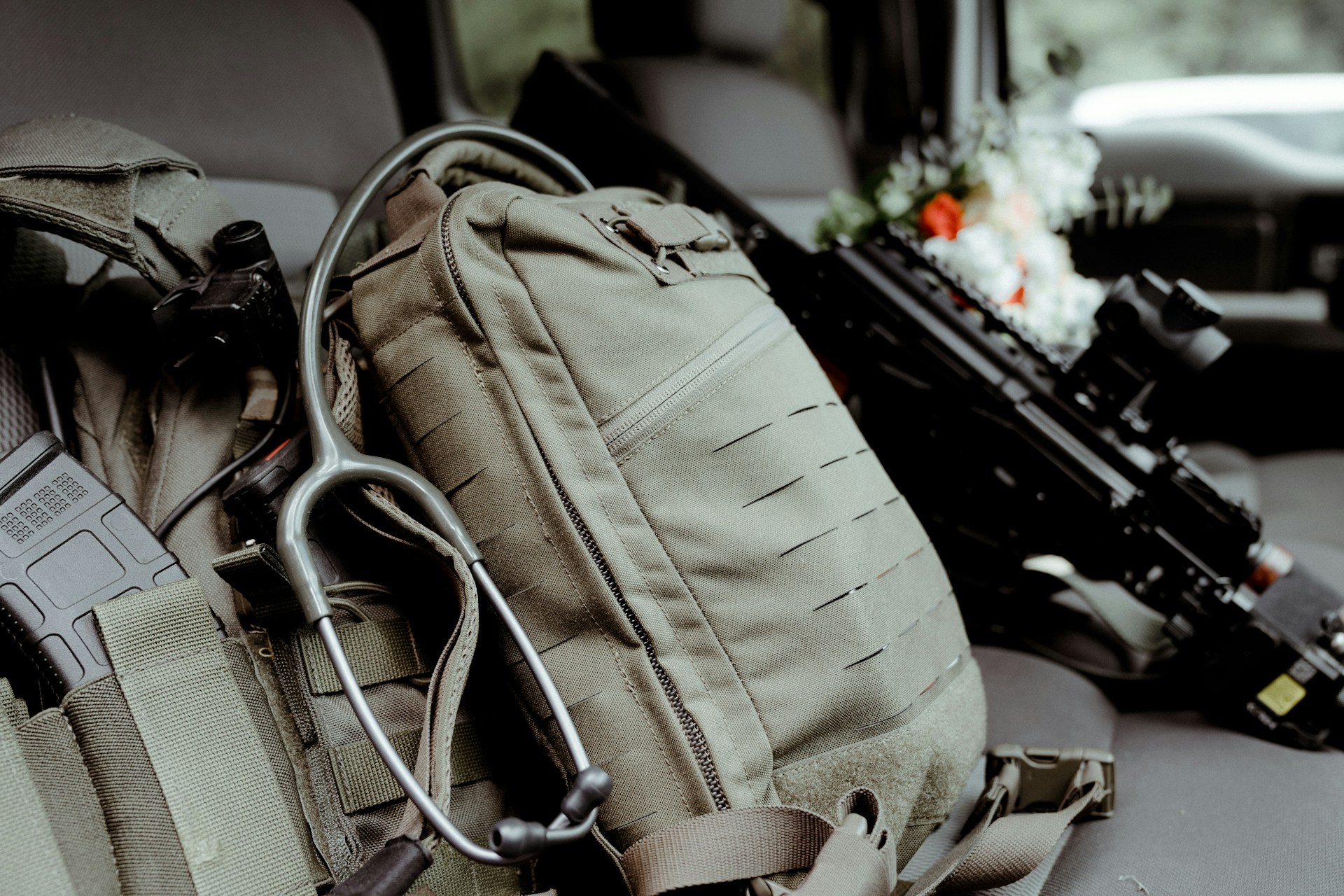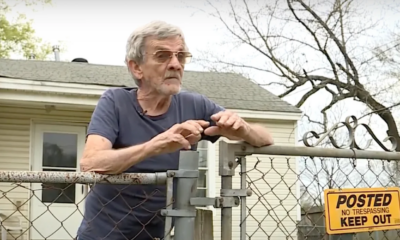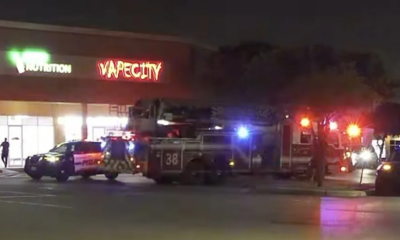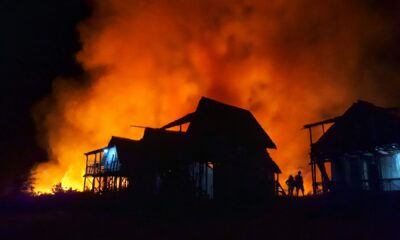Preparedness
10 Warning Signs of a Civilization in Decline

Throughout history, mighty civilizations have risen and fallen, not with a sudden crash but through a gradual process of internal decay. A great civilization is not conquered from without until it has destroyed itself within. The essential causes of Rome’s decline lay in her people, her morals, her class struggle, her failing trade, her bureaucratic despotism, her stifling taxes, and her consuming wars. Once a civilization begins its descent, it becomes increasingly difficult to reverse course, much like a train slowly veering off its tracks. What lessons can we learn from these historical collapses? How might we recognize the warning signs in our own society? Keep reading to find out.
1. Economic Instability
Economic instability weakens societies and sets the ball rolling toward economic and, eventually, societal collapse. The Roman Empire’s economic collapse was due to overspending, inflation, and reliance on slave labor. Similarly, the Ming Dynasty faced severe economic decline due to excessive taxation, inflation caused by the influx of silver, and corruption. These issues weakened the state’s ability to defend itself and maintain stability, leading to its collapse and the rise of the Qing Dynasty.
2. Political Instability
It is hard for a civilization to survive years upon years of political instability. The fall of the Roman Empire was marked by political corruption, power struggles, and the eventual rise of dictatorial rule. Corruption in the final days of the Babylonian Empire and infighting in the late Ottoman period led to total societal collapse. The Austro-Hungarian Empire was plagued by political instability, largely due to its complex structure of dual monarchy and the competing interests of its various ethnic groups. When citizens lose trust in their governments due to corruption, a vicious cycle of upheaval is born.
3. Social Inequality and Class Conflicts
Another sign of a collapsing society is social inequality and class conflicts. The increasing wealth gap and class struggles in pre-revolutionary France and Russia are prime examples. Social stratification in Babylon and the rigid caste system in ancient India led to social unrest. The anger and social unrest led to revolutions and the overturning of governments.
4. Moral and Cultural Decline
Edward Gibbon, who wrote “History of the Decline and Fall of the Roman Empire,” claims that the loss of civic pride brought on by the rise of the Christian religion was one cause of the empire’s fall. The rise of Christianity influenced the Roman psyche and coincided with revelations of moral decay. Similarly, the moral and cultural decline in the final years of the Byzantine Empire undermined societal cohesion. Without shared pride and a shared notion of civic and moral responsibility, societies turn on each other from within.
5. Military Overreach
Due to external threats, military forces overreach, which has backfired in societies throughout history. The overextension of the Roman Empire left it vulnerable to barbarian invasions. The disastrous invasion of Russia and subsequent military defeats ultimately led to France’s downfall. Whenever external pressures threaten societies, they put their military to work. However, if they are not wise in how they use their military forces, they may inadvertently put themselves in greater danger.
6. Environmental Neglect
Environmental neglect has led to resource scarcity, eventually leading to societal collapse. Historians believe deforestation and soil depletion contributed to the fall of the Sumerian civilization. Similarly, overfarming and desertification in ancient Mesopotamia led to societal stress.
7. Decline in Intellectual and Cultural Pursuits
A decline in intellectual pursuits and cultural innovation also tends to signal the fall of an empire. This is noticeable when we look at the decline of intellectual and cultural life during the fall of the Western Roman Empire and the stagnation of scientific and cultural development in the late Islamic Golden Age.
8. Centralization of Power and Loss of Local Autonomy
The centralization of power under the Roman emperors led to the decline of local governance. The Roman Empire dramatically shifted power away from representative democracy to centralized imperial authority, with the emperor holding the most power. Likewise, the centralization of the Ottoman Empire under weak sultans proved ineffective.
9. Demographic Changes
When the population and demographics change drastically, it can signify bad things to come. The population decline in late Rome due to plagues, declining birth rates, and constant warfare exacerbated the empire’s collapse. There is also evidence that the population decline of the Mayan civilization was one cause of its collapse.
10. Loss of Faith in Institutions and Ideologies
One final sign that you’re living in a collapsing society is the erosion of belief in societal institutions and ideologies. When citizens lose faith in government and religious institutions, chaos and disintegration follow. The loss of faith in the Roman government and traditional Roman religion contributed to the empire’s fall. Similarly, by the late seventeenth and early eighteenth centuries, the Spanish Empire had lost much of its former power and influence, leading to a loss of faith in the monarchy and the church.
The collapse of civilizations throughout history offers us valuable lessons. Economic instability, political corruption, social inequality, moral decline, military overreach, environmental neglect, intellectual stagnation, centralization of power, demographic shifts, and loss of faith in institutions are all warning signs of a society in decline. By recognizing these patterns, we can better understand the challenges facing modern societies and work towards preventing similar downfalls. Take this information and draw your own conclusions, friends.
Let us know what you think, please share your thoughts in the comments below.

Preparedness
Survival in a Changing America: Why Preparedness Matters More Than Ever

Survival isn’t just about wilderness skills or stockpiling food. In today’s America, survival means being ready — financially, mentally, and physically — for rapid change. Under President Trump’s current term, the country is moving fast. Supporters see decisive leadership, tougher borders, economic nationalism, and a renewed focus on American strength. But with that speed comes disruption, resistance, and uncertainty. That’s where personal preparedness comes in.
President Trump has made it clear he believes in self-reliance, national security, and strength over dependence. Those same principles apply at the household level. Whether it’s supply chain pressure, political unrest, inflation, or grid stress, Americans who prepare are simply harder to shake.
1. Control What You Can Control
Trump’s presidency has emphasized America first — but that mindset starts at home. You may not control Congress, global markets, or activist judges, but you can control your food, water, cash reserves, and personal security. A prepared household is less vulnerable to sudden price spikes, shortages, or emergencies caused by political or economic battles in Washington.
Stocking basic food, having backup power, and keeping cash on hand isn’t paranoia — it’s responsibility.
2. Supply Chains Are Still Fragile
Despite economic growth claims and lower energy prices in some areas, grocery costs and essentials remain unpredictable. Trump’s push for tariffs and reshoring manufacturing is aimed at long-term strength, but transitions aren’t painless. Short-term disruptions happen before long-term gains materialize.
Smart Americans don’t wait for headlines to confirm trouble. They quietly build buffers: extra food, household necessities, and alternative sourcing.
3. Civil Unrest Isn’t Going Away
Trump’s presidency continues to expose deep political divides. Protests, counter-protests, and aggressive rhetoric aren’t disappearing — they’re becoming normalized. Survival today means knowing how to avoid trouble, not chase it.
Situational awareness, safe travel habits, and basic home security upgrades matter more now than they did a decade ago. Strong borders don’t eliminate internal instability overnight.
4. Medical and Personal Readiness Matter
Government systems get stressed during shutdowns, disasters, or mass events. Trump often criticizes bloated bureaucracy for a reason — it moves slowly when speed matters. Having basic medical supplies, prescriptions, and personal health plans ensures you don’t depend entirely on institutions that may lag when demand spikes.
Preparedness is independence.
5. Survival Is a Mindset, Not Fear
Trump supporters are often labeled “fearful,” yet preparedness is the opposite of fear. It’s confidence. It’s knowing that no matter what happens — politically, economically, or socially — your family is stable.
The core Trump message has always been strength, resilience, and refusing to be weak or dependent. Survival thinking aligns perfectly with that philosophy.
America is changing. Fast leadership brings fast reactions. The prepared citizen doesn’t panic, protest, or plead — they adapt.
Survival today isn’t about hiding from the future. It’s about being ready to face it head-on.
Preparedness
How U.S. Citizens Should Stay Safe When Traveling Abroad

Traveling internationally can be rewarding, but it also carries risks that vary widely by destination and situation. The U.S. government offers specific safety guidelines to help American travelers prepare, stay informed, and protect themselves throughout their trip.
Here are key practices U.S. citizens should follow to stay safe overseas:
1. Check Travel Advisories Before You Go
The U.S. Department of State issues travel advisories for every country. These advisories use a four-level system to show risk:
- Level 1: Exercise normal precautions
- Level 2: Exercise increased caution
- Level 3: Reconsider travel
- Level 4: Do not travel
Before booking or departing, always review the current advisory for your destination. Higher levels indicate serious risks like crime, civil unrest, terrorism, health emergencies, or limited emergency services.
2. Enroll in the Smart Traveler Enrollment Program (STEP)
Before departure, sign up for the Smart Traveler Enrollment Program (STEP). This free service connects you to the nearest U.S. embassy or consulate and keeps you informed with real-time updates about safety, weather, civil unrest, or health issues in your destination. It also makes it easier for authorities to contact you or your emergency contacts if needed.
3. Know Local Laws and Customs
U.S. citizens abroad must obey the laws of the country they are visiting. Local legal systems and penalties can differ significantly from those in the United States. Travelers should research local laws, dress codes, cultural norms, and any restricted activities before departure to avoid fines, detention, or legal complications.
4. Prepare Important Documents and Contacts
Carry your passport with you at all times and make digital copies of important documents like your passport page, travel insurance, and emergency contacts. Leave copies with someone at home and store them securely online. Keep local embassy contact information readily available in case you need assistance while abroad.
5. Have a Personal Emergency Plan
Emergencies can range from civil unrest and natural disasters to health crises and lost travel documents. Plan ahead:
- Know where the U.S. embassy or consulate is in your destination
- Have a communication plan with family or friends back home
- Know your travel insurance coverage and how to access medical care while abroad
- Understand evacuation routes and local emergency services
During a crisis, the U.S. government may not be able to evacuate you immediately. You should be ready to use commercial travel options to leave if it is safe to do so.
6. Stay Alert and Use Common Sense
Travel safety often comes down to ordinary precautions:
- Avoid risky areas and follow local authority instructions
- Keep a low profile and avoid displaying expensive items
- Be aware of your surroundings, especially in crowded or unfamiliar places
These practices reduce the chance of being targeted for theft or other crimes.
Why This Matters Today
Global travel risks can change quickly due to political tensions, health outbreaks, or civil unrest. For example, the U.S. government has issued worldwide travel caution alerts during periods of heightened international tension, underscoring the importance of staying updated with current risks.
Summary of Key Safety Steps
- Check official travel advisories for your destination
- Enroll in the Smart Traveler Enrollment Program (STEP)
- Know local laws and customs
- Carry and secure important travel documents
- Prepare a personal emergency plan
- Stay alert and cautious throughout your trip
Preparedness
5 Things You Need to Travel Across America Safely and Legally

Traveling across the United States is one of the great freedoms Americans enjoy. Whether you’re driving state to state, flying cross-country, or taking a long road trip, staying safe and fully within the law doesn’t require anything complicated. It just takes preparation, awareness, and a few essentials that every traveler should have in place before they go.
Here are five things you need to travel across America confidently, safely, and legally.
1. Valid Government-Issued Identification
This is non-negotiable.
A valid ID proves who you are and allows you to travel without unnecessary delays or problems.
For most people, this means:
- A valid driver’s license or REAL ID
- A state-issued ID card if you don’t drive
- A valid U.S. passport (especially useful for air travel)
If you’re flying, your ID must meet TSA requirements. If you’re driving, your license must be current and not suspended. Keep your ID easily accessible, but secure.
2. Proof of Legal Residency or Citizenship (If Applicable)
If you are a U.S. citizen, carrying proof such as a passport or passport card adds an extra layer of security during long trips, especially near border states or when flying.
If you are a legal resident or visa holder, you should always carry:
- Your valid visa or green card
- Any required travel documents associated with your status
Having proper documentation protects you from misunderstandings and unnecessary stress.
3. Proper Vehicle Documents (If Driving)
If you’re traveling by car, make sure your paperwork is up to date.
This includes:
- Vehicle registration
- Proof of insurance
- A valid driver’s license
Law enforcement checks are routine and usually brief when paperwork is in order. Keeping documents organized shows responsibility and helps everything go smoothly.
4. A Safe and Legal Travel Plan
You don’t need a strict itinerary, but you should know where you’re going and how you’ll get there.
A smart travel plan includes:
- Knowing your route and major stops
- Booking legal accommodations (hotels, campgrounds, or rentals)
- Understanding basic state laws (speed limits, phone use, toll roads)
Each state has its own rules, and being aware of them helps you avoid fines or problems.
5. Emergency Contacts and Communication
Safety isn’t just about laws — it’s about preparedness.
Carry a charged phone, a car charger or power bank, and a written list of emergency contacts in case technology fails.
It’s also wise to:
- Share your travel plans with someone you trust
- Check weather conditions regularly
- Keep emergency numbers saved and written down
Prepared travelers are calm travelers.
Final Thought
Traveling across America legally and safely doesn’t require fear or special permissions. It requires valid identification, proper documents, respect for local laws, and basic preparedness.
When you travel with everything in order, you’re free to enjoy the journey — not worry about it.
-

 Tactical2 years ago
Tactical2 years ago70-Year-Old Fends Off Intruder with Lead-Powered Message
-

 Off The Grid4 months ago
Off The Grid4 months ago10 Foods That Could Save Your Life When Grocery Shelves Are Empty
-

 Tactical2 years ago
Tactical2 years agoVape Shop Employee Confronts Armed Crooks, Sends Them Running
-

 Preparedness3 months ago
Preparedness3 months ago5 Things You Should Always Carry During a Winter Storm
-

 Preparedness2 years ago
Preparedness2 years agoEx-Ballerina’s Guilty Verdict Sends Tremors Through Gun-Owner Community
-

 Nature and Wildlife3 months ago
Nature and Wildlife3 months ago10 Survival Skills You Should Learn Before You Need Them
-

 Preparedness3 months ago
Preparedness3 months agoSmart Person’s Checklist: 10 Things You’ll Wish You Had When Disaster Strikes
-

 Preparedness1 year ago
Preparedness1 year agoGood Samaritan Saves Trooper in Harrowing Interstate Confrontation
Leo D. Hamm
February 10, 2025 at 3:14 pm
We do note seem to be able to learn from history?
CPO Bill
February 13, 2025 at 2:34 pm
Liberal Democraps are the root of all that is evil!